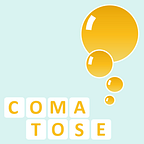The Authentic Dream
Participants in the Online Identity Project talk about ‘being themselves’ online
To be authentic, “not false or copied; genuine; real”, is something many of us seem to seek as we interact with others in online communities.
But can we always avoid being false when we’re limited to 140 characters on Twitter; can we be real as we apply filters too small, curated snapshots of our lives on Instagram? Our very presence online can be a copy of who we are offline —
For all our intentions to have authentic interactions, are our online selves ever completely genuine?
“I don’t want to be fake.”
Jonas is a photographer from Seattle who developed his business from playing with different creative outlets in online platforms like Flickr and Vimeo in the 2000s.
Jonas describes struggling with the balance between running a professional presence online, while remaining personal, creative and true to himself:
“If Facebook and Twitter is like this big party, and some people are showing others pictures of their kids, and some people are talking about this great meal they had, I feel like sometimes I’m just walking around handing out my business card.”
“I don’t want it to be like that, and I’ve started trying to post more personal stuff… but of course ‘trying’ to post more personal stuff isn’t really being personal.”
Even offline, the idea of authenticity assumes a singular and linear state of being; it assumes we use the same tone and language with everyone we meet, from our bosses to our parents to our lovers and friends.
Anonymous social media user ‘Grawlix’ shared an insight into the different ways in which they use various online communities:
“My behavior changes dramatically depending on which platform I’m on. And there are a lot of reasons for that, ranging from the people I’m interacting with, to the site’s tools, to the platform’s culture. I honestly don’t know that I could convey one consistent picture of myself on every platform I use, because they’re all just so different.”
So with so many different identities catering to different communities and types of interactions, is it even possible to be authentic?
Should we always be putting our authentic selves out in public, for anyone to view?
Vivian, a brand manager in Shanghai writes:
“I am a very private person and the things I share on social media are still ultimately considered and ‘groomed’, if you like,”
“I think there’s a common misconception that you are what you share. Which is true to a degree, but it’s ultimately only a small part of who that person is.”
What does authenticity online mean to you?
Does it mean using a real name, or including a photo of yourself on your online profile?
Does it mean being explicit about your gender or race or religion or political beliefs?
Do you think about what you put in the public domain or do your interactions come naturally?
Listen to Virginia Streit’s special edition:
Written by Virginia Streit of The Online Identity Project.
Comatose is a weekly series of amusing anecdotes, insightful commentary, and pithy stories. Every week three contributors are featured in short segments. The segments, though often unrelated, are tied together using music and narration to set the scene. Relax and enjoy the ride while listening to topics as varied as love, birthdays, and reciprocity.
You can find Comatose on Facebook, Twitter, iTunes, and Stitcher.
Indefinite Lessons of Youth & Love ← Previous — Next → I Want To Go Somewhere Far
